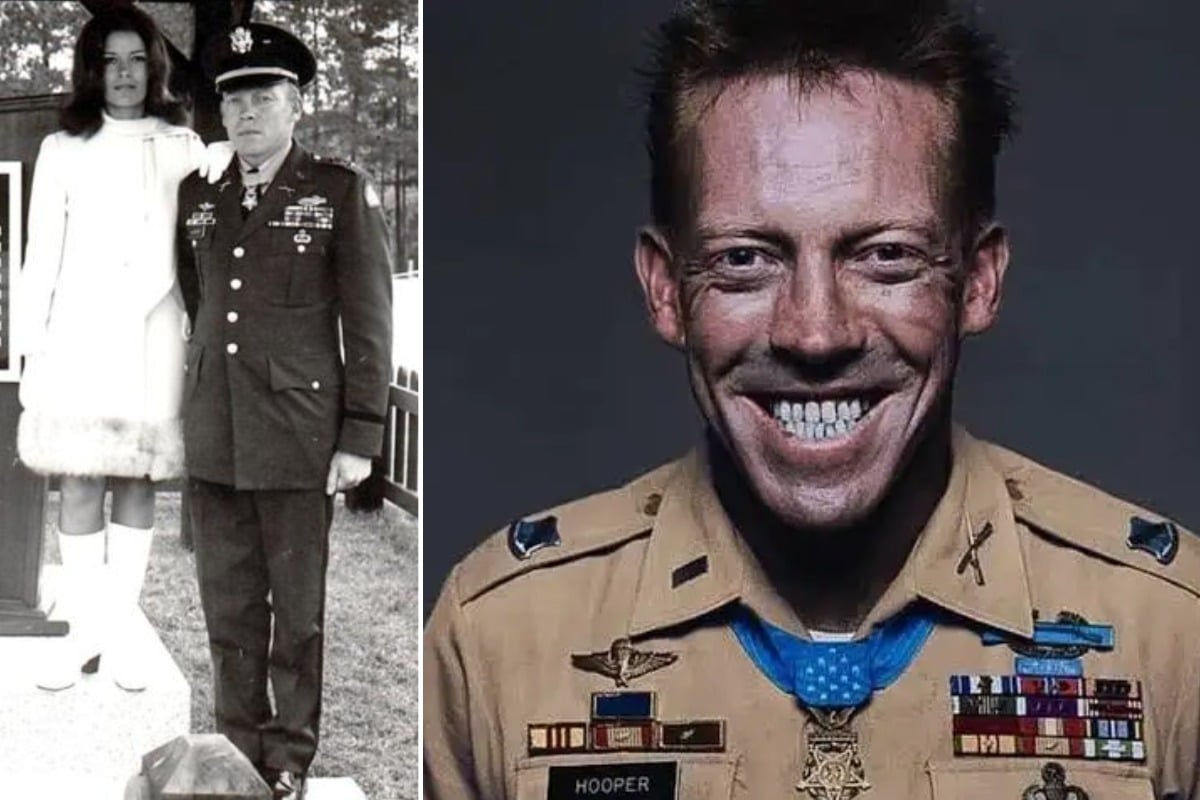The Chelan County Sheriff’s Office announced Tuesday that DNA testing has confirmed what many already feared: former Army Ranger Regiment infantryman Travis Caleb Decker, 32, is solely responsible for the murders of his three young daughters. Despite the forensic evidence piling up, Decker remains at large—armed, dangerous, and still capable of disappearing into the wilderness.

DNA Evidence Locks In the Case
The Washington State Crime Lab confirmed that DNA recovered from plastic bags and cable ties at the Rock Island Campground matched Decker. Those same bags were used to suffocate Paityn (9), Evelyn (8), and Olivia (5) Decker, whose bodies were found on June 2, discarded just yards from their father’s abandoned pickup truck.

Autopsies determined the girls died by suffocation, their hands bound, in what investigators describe as a meticulously planned act of homicide.
“The completion of this DNA analysis provides additional evidence that indicates Travis Decker is the only suspect involved,” the sheriff’s office said in a press release.
Military Record: Ranger Regiment, Deployment, Guard
Decker enlisted in March 2013 as an infantryman (11B) and successfully completed the Ranger Assessment and Selection Program (RASP). From 2014–2016, he served as an automatic rifleman with 2nd Battalion, 75th Ranger Regiment at Joint Base Lewis-McChord, including a four-month Afghanistan deployment in 2014.
After leaving Regiment, he was later stationed in Vicenza, Italy, with the 173rd Airborne Brigade Combat Team, before finishing his active-duty career in July 2021. At that point he transferred to the Washington Army National Guard, though court records indicate he stopped attending drill about a year ago.
Notably, Army records and press reporting confirm that Decker never earned a Ranger Tab, despite some photos circulating online of him wearing one.
A Soldier Who Lost His Way
Fellow soldiers describe Decker as a man who “always had something to prove.” One former squadmate said he “worshipped his father, a Green Beret, and carried a chip on his shoulder about not completing Ranger School.”
By 2024, his life had clearly unraveled. Court filings described him as unstable, homeless, and living in a National Guard armory with his daughters on bare mattresses. He was diagnosed with borderline personality disorder but routinely failed to follow through on treatment. His ex-wife, Whitney, begged the court to restrict overnight visits. Her pleas were ignored.
Now, three children are gone—and a once-trusted Ranger Regiment soldier is the accused killer.
Betrayal Felt in the Ranks
For veterans, the betrayal cuts deep. The Ranger Regiment is built on discipline, loyalty, and sacrifice. Seeing one of their own accused of murdering children is a disgrace few can stomach.
“All of us who wore the uniform beside him feel sick. It’s a disgrace to every soldier who ever fought with honor,” one infantryman told The Salty Soldier.
Decker’s training also makes him uniquely dangerous. A decade of infantry experience—ranging from land navigation to survival—means he can live off-grid longer than most. That advantage has fueled one of the largest and most frustrating manhunts in recent Washington history.
A Manhunt Gone Cold
In the weeks after the killings, law enforcement flooded Washington’s Cascade Mountains, combing the wilderness around Blewett Pass, the Enchantments, and the Pacific Crest Trail corridor.
Air assets, tracking dogs, ground teams, and even swift-water rescue units were deployed. The Washington National Guard provided helicopters to support the search.
But after nearly three months, the trail has gone cold. False sightings in Idaho and Montana diverted resources, and in late July, the search footprint was scaled back.
Authorities now admit they don’t know if Decker is even alive.
Armed, Dangerous, and Still Out There
Decker faces three counts of aggravated murder and kidnapping, as well as federal charges for unlawful flight to avoid prosecution.
The U.S. Marshals Service has posted a $20,000 reward for information leading to his capture. He is considered armed, dangerous, and unstable.
Anyone with credible information is urged to:
- Call 911 immediately if spotted—do not approach him.
- Contact the U.S. Marshals at 1-800-336-0102.
- Submit a tip at www.usmarshals.gov/tips.
Systemic Failures and Hard Questions
This tragedy has become more than a murder case—it’s a referendum on how we handle custody disputes, mental health, and veterans in crisis.
Washington’s family courts ignored repeated red flags, granting unsupervised visitation despite clear warnings. The Amber Alert system also failed—state police declined to issue one when the girls first went missing, claiming the situation didn’t meet the criteria for an “imminent threat.”
For the veteran community, it’s an especially bitter pill. Decker once wore the Ranger scroll on his sleeve. He had the skills, the training, and the brotherhood of a storied unit. Instead, he turned those skills inward—against his own family.
It’s a chilling reminder: while most veterans wrestle through their demons honorably, a few—left untreated and unchecked—become something darker.
Waiting for Justice
For now, three young lives are gone, a mother is shattered, and a fugitive Ranger Regiment veteran is still out there. Justice may come from a hunter’s chance encounter, a random tip, or a final desperate mistake by Decker himself.
Until then, veterans and civilians alike are left asking: How did it come to this—and how do we make sure it never happens again?
© 2025 The Salty Soldier. All Rights Reserved. Reproduction of this content without permission is prohibited.




